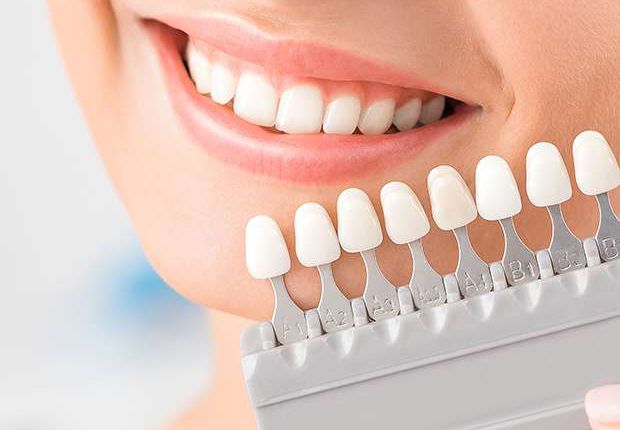Dental Implants: A Lifelong Investment in Oral Health and Quality of Life
Posted by Abbas Nejad May 23,2024

Dental implants represent more than just a solution for missing teeth; they are a lifelong investment in oral health and quality of life. Unlike traditional tooth replacement options, such as bridges or dentures, dental implants provide a permanent and stable foundation that mimics the natural structure of teeth. By integrating with the jawbone, implants prevent bone loss and maintain facial integrity, preserving youthful aesthetics and preventing the sunken-in look often associated with tooth loss. Beyond aesthetics, implants restore oral function, enabling individuals to eat, speak, and smile confidently and comfortably. Dental implants can last a lifetime with proper care and maintenance, offering unparalleled longevity and durability. This investment in oral health pays dividends in terms of improved self-esteem, restored confidence, and enhanced overall well-being, making dental implants a wise and enduring choice for individuals seeking a permanent solution for tooth replacement.
The Lifelong Benefits of Dental Implants
Aesthetics and Natural Appearance
Dental implants resemble natural teeth in appearance and function, blending seamlessly with the rest of the smile. The custom-crafted prosthetic teeth are meticulously designed to match adjacent teeth' size, shape, and color, resulting in a lifelike smile that looks and feels entirely natural. This aesthetic similarity enhances self-confidence and allows individuals to smile, speak, and socialize easily, free from the self-consciousness often associated with tooth loss.
Restored Functionality and Oral Health
Beyond aesthetics, dental implants restore full oral function, enabling individuals to bite, chew, and speak confidently and comfortably. Unlike removable dentures, which may slip or move while eating or speaking, implants are securely anchored in the jawbone, providing stability and preventing discomfort or embarrassment. Additionally, implants stimulate the jawbone, preventing bone loss and preserving facial structure and integrity. This promotes better oral health and prevents the sunken-in look often associated with tooth loss, maintaining a youthful facial appearance.
Longevity and Durability
With proper care and maintenance, dental implants can last a lifetime, making them a wise long-term investment in oral health. Unlike traditional bridges or dentures, which may need to be replaced periodically, implants offer permanent results and require minimal adjustments over time. This eliminates the need for costly and time-consuming replacements, saving individuals time and money in the long run.
Improved Confidence and Quality of Life
The transformative effects of dental implants extend beyond just the physical restoration of teeth; they also profoundly impact self-esteem and overall quality of life. Individuals experience renewed confidence and self-assurance with a restored smile, enabling them to engage more fully in social, professional, and personal interactions. Whether smiling for a photograph, speaking in public, or enjoying a meal with friends, dental implant recipients can do so confidently and without fearing embarrassment or insecurity.
The Procedure of Dental Implants
- During the initial consultation, the dentist evaluates the patient's oral health, discusses treatment goals and expectations, and determines whether the patient is a suitable candidate for dental implants. This may involve taking X-rays, CT scans, or intraoral scans to assess bone density and anatomy.
- The first surgical stage involves placing the dental implants into the jawbone. This is performed under local anesthesia or sedation to ensure patient comfort. The oral surgeon will make an incision in the gum tissue to expose the jawbone and then drill small holes for the implant placement. Once the implants are securely positioned, the gums are sutured closed, and a healing period begins.
- Over the next several months, the implants will undergo osseointegration, during which they fuse with the surrounding bone tissue. This provides a strong and stable foundation for the final restoration and ensures long-term implant success.
- Once osseointegration is complete, a second minor surgical procedure attaches abutments to the implants. Abutments are small connectors that protrude above the gum line and serve as attachment points for the final restorations.
- After the gums have healed and the abutments are in place, impressions or digital scans of the mouth are taken to fabricate the final prosthetic teeth. Depending on the patient's specific treatment plan and needs, these may be individual crowns, bridges, or implant-supported dentures.
- Regular follow-up appointments are scheduled to monitor the healing process, ensure proper function and fit of the final restorations, and provide ongoing maintenance and oral hygiene instructions.
Aftercare and Maintenance
Practice Good Oral Hygiene
Brush and floss regularly to keep the implant-supported restorations and surrounding gums clean and free of plaque and bacteria. Use a soft-bristled toothbrush and non-abrasive toothpaste to avoid scratching the restorations.
Attend Regular Dental Check-Ups
Schedule routine dental check-ups and cleanings to monitor the health of your implants and surrounding tissues. Your dentist will assess the stability of the implants and identify any potential issues early on.
Avoid Hard Foods and Habits
Avoid chewing on hard objects or foods that could damage or dislodge the implant-supported restorations. Refrain from biting on ice, pens, or other hard objects, and avoid habits such as nail-biting or using teeth as tools.
Quit Smoking
Smoking can interfere with the healing process and increase the risk of implant failure. If you smoke, consider quitting or reducing your tobacco use to improve the long-term success of your dental implants.
Protect Against Teeth Grinding
If you grind or clench your teeth, discuss options for night guards or other protective measures with your dentist. Excessive grinding can put undue stress on the implants and compromise their stability over time.
Dental implants represent more than just a solution for missing teeth; they are a lifelong investment in oral health and quality of life. Visit Laveen Dental at 5130 W. Baseline Rd Ste 111, Laveen, AZ 85339, or call (602) 237-7878 to explore the transformative benefits of dental implants.
More Blog Posts
Office Hours
MON9:00 am - 7:00 pm
TUE - FRI9:00 am - 5:00 pm
SAT8:00 am - 1:00 pm
SUNClosed
















